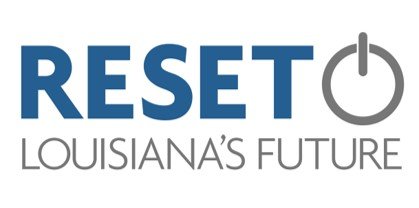BY WILL SENTELL | Staff writer | Nov 10, 2019 - 9:45 pm
While 44% of Louisiana's public schools are again under special scrutiny, the picture is less dire than it was eight years ago when state leaders announced that 44% percent of schools were rated "D" or "F."
State Superintendent of Education John White said last week that 571 schools statewide – 44% of the total – require improvements and that local school officials will have to submit plans on how to upgrade them.
The announcement was reminiscent of one in 2011, when the first round of public school letter grades highlighted major problems in the state's classrooms.
That report helped spur sweeping education changes pushed by then-Gov. Bobby Jindal during the 2012 legislative session.
But this time 300 of the 571 schools targeted, including 73 that carry a "B" ranking, face scrutiny because of problems with specific groups, like African American students or those with disabilities, and with discipline.
In addition, the ranks of "D" and "F" schools have dropped from 44% in 2011 to 23% now, even with more rigorous state standards.
Another 16% got an "A," 32% got a "B" and 29% received a "C."
Veterans of the state's two-decade push to improve public schools, including the grim report eight years ago, said the latest snapshot is much different from the one that revealed massive problems eight years ago.
"We started with kind of a big macro view," said Barry Erwin, president of the Council for a Better Louisiana.
"As we have gone through, what we have realized is you can have a school with a good letter grade that is not serving its students as well as it should," Erwin said. "The good news is that we are paying attention to it now and we weren't before."
The fact that 571 public schools were identified with problems stems from the state's plan to comply with the 2015 federal Every Student Succeeds Act.
One of the goals of the law is for the state to pinpoint and address problems with specific types of students, known in education circles as subgroups.
In the past, White said, those shortcomings would have been noted, but not much beyond that.
Schools having problems with specific groups of students are separate from the 271 schools that require wholesale changes, including intervention in the current school year. Nearly half of those schools have been rated "F" for at least two consecutive years, reflecting Louisiana's longstanding problems with public school achievement.
However, another key difference between the latest report and 2011 is the fact that the state has raised the bar, and continues to do so, on key tests that shape schools' scores.
Students' test results are divided into five categories: advanced, mastery, basic, approaching basic and unsatisfactory.
The state is gradually raising the standard from "basic" to "mastery," largely to make students and schools more competitive with their counterparts nationwide.
In addition, educators are using a tougher scale than in 2011 for what constitutes a top school.
"We are making progress and we are raising the (level of) rigor while we are doing this," Erwin said.
Brigitte Nieland, government affairs director for Stand For Children, noted that the state no longer relies on a curved system to allocate letter grades, as it did for years.
"When you look at subgroup performance, and the data gives us so much valuable information, no longer can a school rely on the performance of their best students to camouflage struggling student performance," said Nieland, who has followed public school policies for years.
"That is what equity is about," Nieland said.
The state won approval for its plan to comply with the federal law in 2017 amid controversy, including criticism from Gov. John Bel Edwards and teacher unions.
Shane Riddle, legislative and political director for the Louisiana Association of Educators, said some of the state's benchmarks for school performance now exceed federal guidelines.
Riddle said it is hard to gauge progress of specific students.
"You may have tremendous progress and you are still a D or F," he said. "Some of the subgroups may never reach the targets you want to reach."
Mike Faulk, executive director of the Louisiana Association of School Superintendents, said focusing on struggling students is a valid goal.
But Faulk noted that 10 students constitute a subgroup and that, if they are having problems, it can have an inordinate impact on the grades for schools with 100 or so students.
Sen. Conrad Appel, R-Metairie, was the Senate handler for all three of the education overhaul bills approved in 2012, including measures to expand vouchers statewide and to make it harder for teachers to earn a form of job protection called tenure.
Appel, former chairman of the Senate Education Committee, said there is no comparison between the latest 44% percent of schools needing attention and the 2011 report.
"We have ratcheted up our accountability system," he said. "You cannot compare the 2011 accountability system to the 2019. They are apples and oranges."

